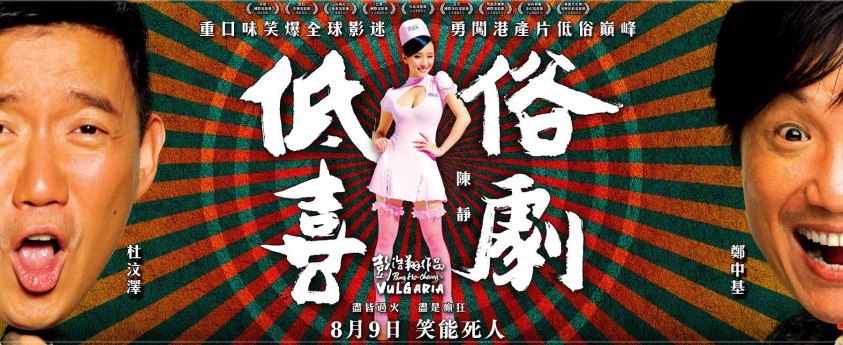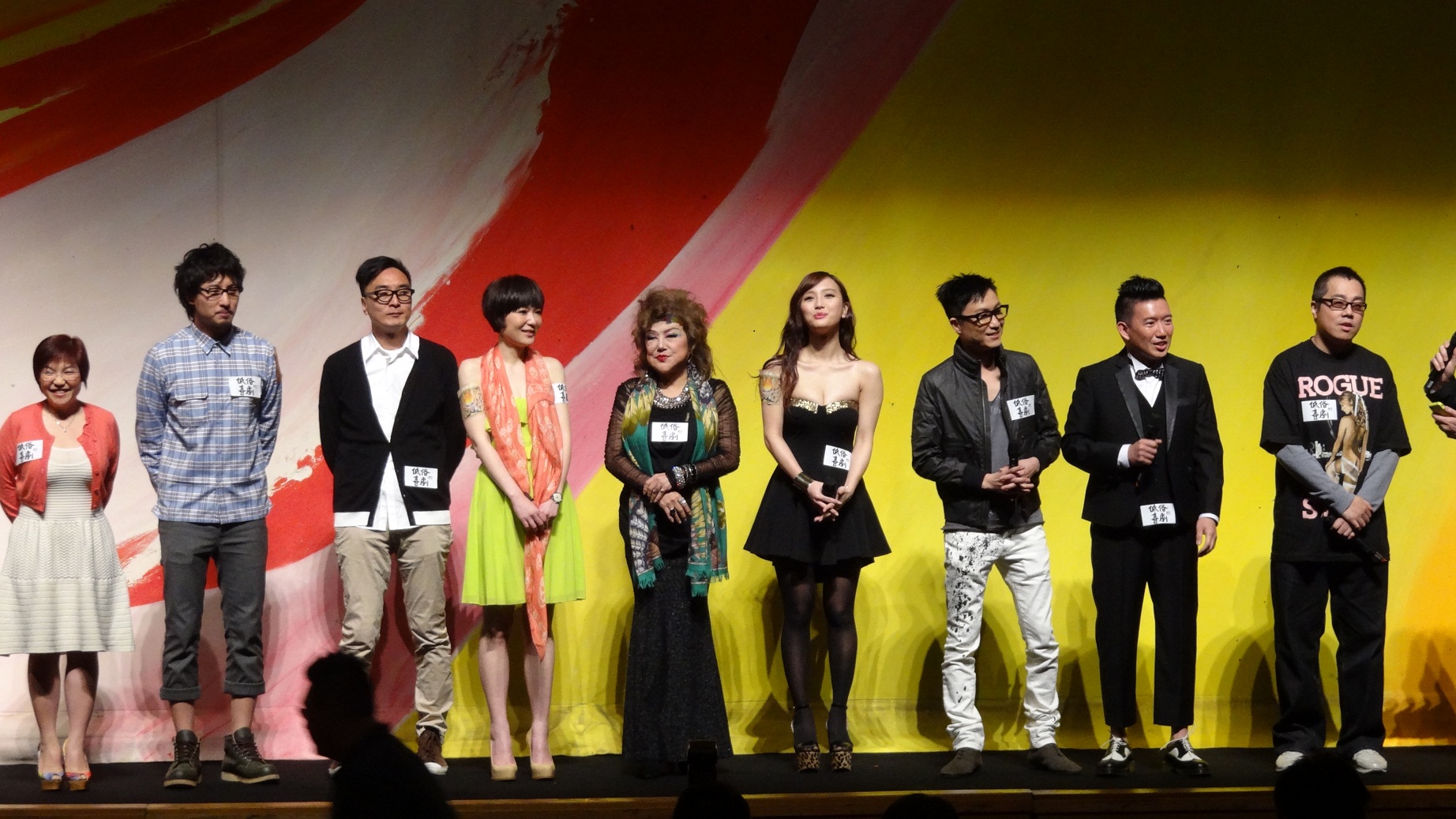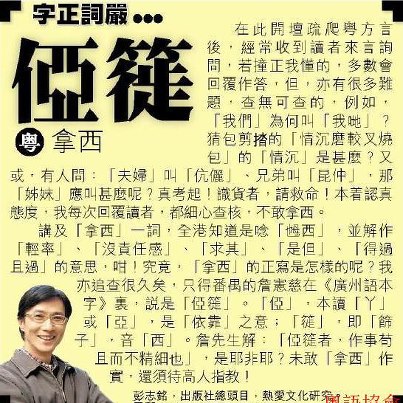August 18th, 2012
The Golden Rock - August 17, 2012 Edition

In just 8 days, Pang Ho-Cheung’s VULGARIA has already grossed HK$11.9 million at the Hong Kong box office, which means both of Pang’s films in 2012 - LOVE IN THE BUFF and VULGARIA - will surely be two of the top ten highest-grossing Hong Kong films of 2012. BUFF has already made HK$27 million and currently holds the top spot at this year’s Hong Kong box office, and if VULGARIA makes more than HK$23 million, it would officially make Pang the first director since Stephen Chow whose film(s) managed to gross over HK$50 million in a single year. However, the difference will be that Chow did it with one film (CJ7), while Pang will be doing it with two.
How did a foul-mouthed category III film about making movies manage to become one of the highest-grossing local films of the year? My own opinion of the film aside (my audio review on East Screen West Screen), let’s first acknowledge that VULGARIA being a good film is not enough. Anyone who thinks that good movies make money and bad movies don’t make money is just being naive.
If the movie being good is not the reason, then why else would VULGARIA be such a hit?
Warning: The following includes many Cantonese profanities and possible spoilers for VULGARIA
1) Thank EXODUS
There are several specific Cantonese curse words that are considered no-no for Hong Kong censors. Traditionally, use of those words would automatically warrant a category III (no one under 18 admitted) for the film, which is why commercial Hong Kong films typically stay away from them. However, in 2007, Pang Ho-Cheung’s EXODUS became one of the first Hong Kong films to use these Cantonese cuss words liberally (you can see on the clip above) and still managed to avoid a category III rating. Reportedly, Pang pointed out to the censors that films with English profanity are often passed with IIB (not an age-restricted rating) and that the use of profanity actually reflects everyday reality. The censors agreed and allowed EXODUS to pass with a IIB.
This actually became a game changer of sorts, as other filmmakers began to follow suit. Wong Jing’s MR. AND MRS GAMBLER features several jokes involving Cantonese cuss words, Heiward Mak had his idol stars mouth them in EX, and Pang Ho-Cheung continued to include them in his films until LOVE IN THE PUFF got the category III because TELA had a problem with the characters using profanity too casually (according to Pang). However, PUFF then became immensely popular among young audience, and Pang knew that it was partly because young people find Cantonese profanity amusing.
After making LOVE IN THE BUFF, his first China co-production, Pang returned to Hong Kong and managed to get HK$7 million from Paco Wong’s Sun Entertainment to make what was called at the time WHAT WE TALK ABOUT WHEN WE TALK ABOUT HONG KONG MOVIE. It was going to be packed with Cantonese profanity, raunchy humor, a load of star cameos (many of whom worked for free), and most importantly, it would have the label “Hong Kong movie” taped tightly to it.
2) Using China’s Weibo
Pang Ho-Cheung currently has 1.9 million followers of Weibo. He knows he’s a popular man on Sina Weibo and other Chinese social media, which is why he has been using it as a tool for the last year and a half. He used it to get extras for LOVE IN THE BUFF, and he had been counting on those same fans to mobilize and enter the cinema for BUFF. Before that turned out to be a disappointing venture, he used Weibo to report the progress of WHAT WE TALK ABOUT WHEN WE TALK ABOUT HONG KONG MOVIE. Pang and producer/star Chapman To had been uploading photos from their meetings and the set of the film for a month before the local press even got to visit the set. On the surface, they seemed like a celebrity’s everyday post, but every single post included the film’s Chinese name (which translates to “A Vulgar Comedy”) and teased the various star cameos. That’s where hype starts.
3) Picking the right handlers
In 2010, local independent distributor Golden Scene premiered LA COMEDIE HUMAINE at the Hong Kong International Film Festival - a full four months before its theatrical release. The film was a tough sell - a buddy comedy about a professional killer and a scriptwriter that was about the magic of movies - but the distributor has proven to be able to sell summer comedies with surprise hit SIMPLY ACTORS. Not only would the HKIFF launch give the film a quality label, but by having only one screening to 1,000 enthusiastic audience members in the Hong Kong cultural center, the amplified response became a good word-of-mouth starter.

When opening weekend arrived in August, Golden Scene also sent the film’s stars on a series of meet-and-greets in Hong Kong cinemas, meeting enthusiastic audiences with what is essentially a stand-up routine. It brought the film festival experience to general movie-going, and it kept the film in the media spotlight.
The result? A film that usually would not have made more than HK$4 million ended up with more than double that. With HUMAINE and the HK$10 million-plus gross for BREAK-UP CLUB, Golden Scene became THE distributor for hip and alternative Hong Kong commercial films.
Golden Scene knew that WHAT WE TALK ABOUT WHEN WE TALK ABOUT HONG KONG MOVIE - now re-titled VULGARIA - would once again be a tough sell to local audiences. It’s category III, it doesn’t have a star that guarantees a huge gross, and it was from a filmmaker who’s only made one commercial hit in his career. As they had done with HUMAINE, they started with one exclusive screening at the HKIFF:

Knowing that Pang is a darling in film festivals, Golden Scene also used Filmart (happening at the same time as HKIFF) to aggressively push to the film to overseas visitors - buyers, programmers, and critics - at the film’s market screening. Ironic for a film selling itself as a pure Hong Kong film, yes, but that’s when one can see Pang and his company had picked the right people.
4) Your audience - and Youtube - are your friends
After a run around the world at film festivals like the Udine Far East Film Festival and the New York Asian Film Festival, Golden Scene kicked off the local advertising campaign for the film. Thanks to LOVE IN THE BUFF becoming the highest-grossing Hong Kong film of the year (eat your heart out, Deanie Ip!), Pang suddenly became a marketable name. This is the guy who once made dark, alternative films (at least considered so in Hong Kong) like YOU SHOOT I SHOOT and DREAM HOME, and now he’s made a super vulgar movie that’s category III? Let’s push him out there:
The above is one of the five making of videos that Golden Scene uploaded, and it contains many of the Cantonese curse words featured in the film. Thanks to the censor-free world that is free internet, this video now has over 200,000 hits on Youtube. In comparison, the cleaner making of videos have only attracted 20,000-70,000 views.
And then there were the audience meet-and-greets. Three weeks before the movie’s official release date, Golden Scene held midnight previews around town and had Pang Ho-Cheung and Chapman To do post-movie talks. Since this was a category III film anyway, Pang, To, and Dada Chan let it all loose with curse words left and right to full-house audiences around town. In the age of smartphones, everyone promptly pulled out their cameras and started filming.
At the first of these talks, To and Pang talk about the importance of making films for Hong Kong audiences, the absurdity of Mainland censorship, the beauty of Cantonese profanity, and sometimes Bosco Wong. Of course, with Ms. Popping Candy herself, there were also a bit of sexual harassment:
Multiple videos of these talks hit Youtube and received thousands of views, which then helped boost sales for the next week of preview screenings. In the second weekend, Pang and To took it further. Not only did they bring a fake mule on their press tour (You’ll get it after you’ve seen the film), they also started revealing the real people behind some of the film’s biggest gags. Here, Pang Ho-Cheung reveals that Chapman To was the real star behind the mule story.
Here, they then reveal that the real Ms. Popping Candy is the girlfriend of Pang’s stills photographer and that Billy Chung is the director who ran gambling dens:
By now, you probably realize you may not want to reveal your most intimate secrets to Pang Ho-Cheung
By the way, it’s clear that Pang and To didn’t count on these videos going online, which is why they repeated many of the same jokes.
5) Pop culture domination

The above is a newspaper column from last week. The subject is a certain Cantonese word in the film that was the subject of several jokes in the film (According to the subtitles, it’s supposed to be “nose diving”, but sounds like something very vulgar). This is only one way that VULGARIA references have dominated local pop culture. While the film’s response ranges from mixed-to-good, several jokes have become talking points among Hong Kongers. And unlike SEX AND ZEN 3D, the references are even about how much the movie sucks.
Over the past year, Hong Kong people has also grown increasingly dissatisfied with Mainland China - from the rudeness of tourists to their rumored influence over the Chief Executive election to the new National Education program. Suddenly, Hong Kongers feel like their superior Hong Konger identities are being threatened, and they will take anything they can get to enforce that identity.
Thanks to that, the idea of watching VULGARIA not only became the hip thing to do as a Hong Konger; it also became a way to show Hong Kongers’ love for Hong Kong.
Yes, a little comedy about people swearing a lot is now patriotic duty.
Will the success of VULGARIA bring on a new slew of real, China-less local movies? There will surely be copycats, but the success of VULGARIA was dependent on so many wild card factors (current events, box office success) that could not be foreseen that lightning is not likely to strike again. As a result, it’s like that everything else that follow will surely be dismissed as copycats. Besides, Pang and To are probably not very well-liked right now in certain circles of the Hong Kong film industry, especially those Hong Kong directors living up north that have been dubbed as traitors of Hong Kong for making movies for China (Hi, Gordon Chan, Peter Chan, Derek Yee, Andrew Lau, and Johnnie To!). Hell, even Pang’s next film is a Huayi Brothers production that will be shot in Beijing! Believe it or not, the Hong Kong film industry isn’t always a united place.
If anything, VULGARIA goes to show that to make money in the movies, it’s not always about making a good movie - it’s about making the right movie.
Well, that and swearing a lot.

